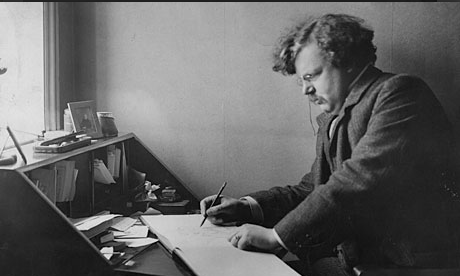
I’ve recently been asked to share some thoughts on using Chesterton in your homeschool with the 2022 Catholic Homeschool Conference. Oh my! Where to start?!? I love Chesterton, but sometimes he can be difficult. Using his works with children is valuable, but not for the faint hearted. There are adapted works that can make things easier, like this Father Brown Reader or its sequel.
In my talk, I address a few areas where using Chesterton in your homeschool really makes a lot of sense. Poetry is the first – his epic poem Lepanto really brings history alive, and I love sharing the poem as well as the miracle that is the Battle of Lepanto with my children every year on the Feast of Our Lady of the Rosary, October 7th. Dale Ahlquist’s annotated edition of this great work really makes it easy to share with your children.
Then there is Chesterton’s Christmas poetry – what a great place to start with your poetry study. Everyone is so familiar with the Nativity and the central theme of Christianity – the Incarnation. The linked file contains a very small portion of the Christmas poetry of G.K. and Frances Chesterton, but I hope it is enough to whet your appetite for more. A fun activity at Christmastime would be to have each member of the family chose a poem to recite (bonus points for memorization) and share them with one another.
Of course, Chesterton was well known for his thoughts on economic theory. By studying distributism, students (and parents alike) are challenged to reconsider their values and assumptions regarding not only economics, but social constructs and the relationship between government and the family. By coupling a study of Distributism in Chesterton’s work Outline of Sanity with the encyclicals Rerum Novarum and Quadragessimo Anno, high school students will make a deeper exploration into economics, but most importantly, the societal consequences of economic systems.
There were few things that Chesterton appeared to truly hate, but birth control was one of them. He pointed out, with his typical sense of humor that brith control was a weak and wobbly word and involved neither birth nor control. Of course the great encyclical Humanae Vitae is essential in any study of the issue of birth control. I find that studying Chesterton along with the teaching of the Church helps one develop cogent arguments and talking points. Chesterton was so good at getting to the heart of the matter, and winning over his opponents with humor and grace. He writes about birth control in many places, including his book Eugenics and Other Evils and his essay Babies and Distributism.
These are only a few ideas, but a good place to start. By introducing your student to Chesterton, you give them an advantage that will pay dividends their entire lives. Studying Chesterton opens our minds to counter cultural thoughts that challenge our preconceived and preprogrammed views of societal structure. If our children are going to survive and thrive in the coming years, they need to be able to “think outside the box” and challenge conventions. Chesterton is an excellent guide along the path.
